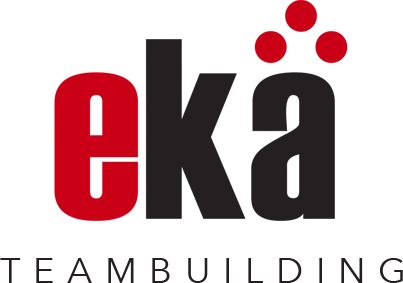Team building enables a company to function like a well-oiled machine. It improves communication, enhances problem-solving abilities, and accelerates productivity. When employees collaborate, they feel energized and motivated. Team building fosters trust, sparks creativity, and cultivates a sense of belonging. Activities such as team building programs, team bonding games, and events help employees support and encourage one another.
As a result, these activities not only develop new skills but also strengthen the company overall. Together, teams can overcome challenges, making the company a more enjoyable and successful place to work.
Why Team Building is Crucial for Companies
1. Enhances Communication
Effective communication is vital for teamwork, and team building fosters more open conversations. Engaging in fun activities together helps employees share ideas more freely and listen more attentively. Team building programs and games improve connections, resulting in clearer, smoother conversations.
2. Strengthens Workplace Friendships
When colleagues form friendships, they become better at supporting one another. Team building provides an opportunity for employees to bond in a fun and relaxed setting. Through socializing, laughing, and participating in activities outside the office, the workplace becomes friendlier and happier. Consequently, team bonding games foster smiles and bring employees closer, creating a stronger sense of camaraderie.
3. Increases Productivity
Familiarity among team members leads to faster work completion. Team building activities highlight everyone’s talents and skills, allowing for more strategic task distribution. By participating in team building programs, teams discover how to allocate tasks effectively, resulting in quicker and more efficient project outcomes.
4. Encourages Problem-Solving
When a team encounters obstacles, collaboration helps resolve issues more quickly. Team building events challenge everyone to think critically and work together. These enjoyable games hone employees’ problem-solving skills, which they can then apply to their day-to-day work.
5. Promotes Teamwork
Team building brings individuals together like pieces of a puzzle, teaching them how to collaborate instead of working independently. Through team bonding games, employees learn to exchange ideas and support one another, ultimately strengthening teamwork and enhancing performance in the workplace.
6. Builds Trust
Trust is a fundamental component of any team. Without it, employees may hesitate to share ideas or seek help. Team building events cultivate trust by requiring participants to rely on each other during games and tasks. As trust grows, employees feel more comfortable sharing their thoughts, leading to a smoother and more positive work environment.
7. Boosts Morale
Happy employees are more productive. Team building events offer a break from routine tasks, giving employees a chance to relax and have fun together. These enjoyable moments boost morale, making employees more enthusiastic about coming to work. Higher spirits lead to longer employee retention and increased effort.
8. Identifies Emerging Leaders
Team bonding games can reveal leadership potential. When employees collaborate on tasks, some naturally step into leadership roles. These activities highlight those with leadership abilities, enabling management to identify future leaders. By observing how individuals lead during games, companies can nurture these employees into future managers or team leaders.
9. Reduces Conflicts
Disagreements are inevitable in any organization, but team building helps employees better understand one another. Fun activities encourage workers to listen, learn, and respect differing opinions. This fosters kindness and prevents conflicts from arising. A harmonious team leads to a more pleasant work environment.
10. Reinforces Company Values
Team building games can reinforce your company’s core values. By organizing events that align with your company’s mission, you remind employees of the importance of their work. These activities illustrate how their roles contribute to the company’s success. When employees recognize this connection, they become more invested in both their work and the organization’s success.
Conclusion
In conclusion, team building programs have a transformative impact on a company’s operations. These activities improve communication, foster problem-solving, and enhance trust. When employees feel connected, supported, and motivated, the company flourishes. Team building boosts morale, strengthens relationships, and makes the workplace more enjoyable and productive. By implementing team building programs, you create a cohesive team and cultivate a work environment filled with kindness, collaboration, and success.
Related Posts
Top 10 Popular Local Team Building Companies
Connect with Us

